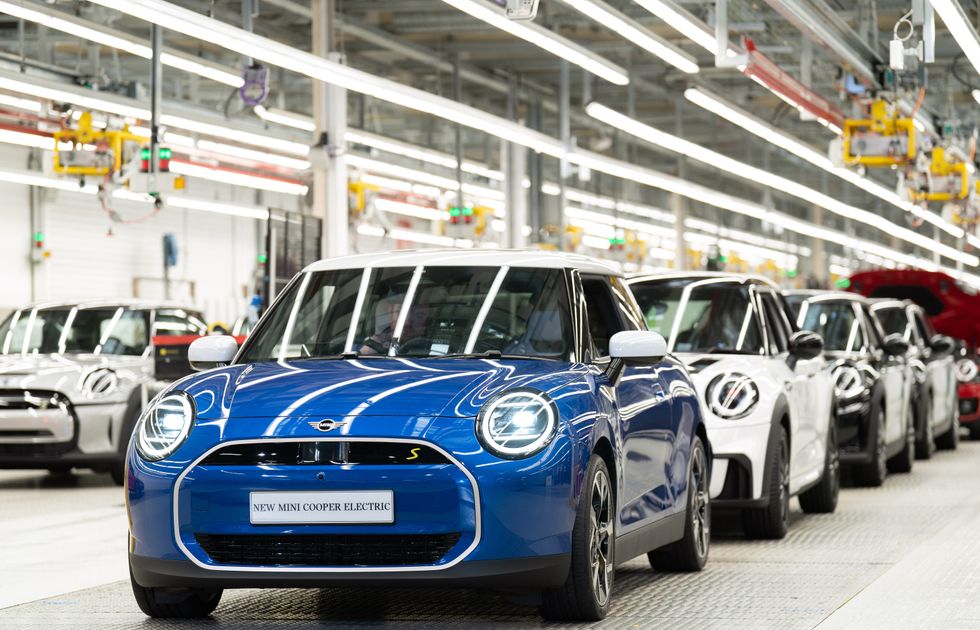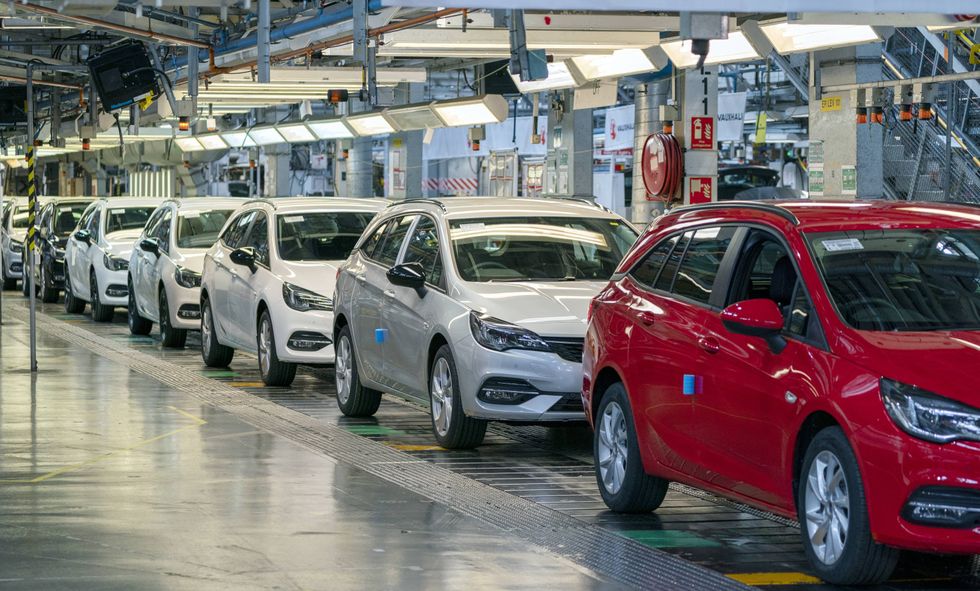UK car production falls again as forecasts warn of 'deeply concerning times' after Vauxhall plant closure
Car makers across the UK have produced almost 240,000 electrified vehicles so far this year
Don't Miss
Most Read
Trending on GB News
Car production in the UK saw a huge 15 per cent drop in October amid concerns from across the sector that demand for electric vehicles could have a huge impact on the future of manufacturing around the country.
The fall in production marks the eighth consecutive month of decline as experts warn that expectations have been downgraded as a result.
In October, 77,484 units left factories, more than 14,000 fewer when compared to the same time last year.
The data from the Society of Motor Manufacturers and Traders (SMMT) identified that factories around the UK continued to retool their factories to produce more zero emission vehicles.
Do you have a story you'd like to share? Get in touch by emailingmotoring@gbnews.uk

October represented the eighth consecutive month of decline
PA
In total, 24,719 battery electric, plug-in hybrid and hybrid electric cars were made, representing almost a third of output. Despite this, it means a volume decline of 32.6 per cent.
Since January, car makers across the UK have produced almost 240,000 electrified vehicles, with more than seven in 10 being exported to global markets.
The push for more electrified vehicles can be seen through a massive investment boost worth £20billion announced by manufacturers, despite a downturn in demand in the UK and across Europe.
While October does not represent the lowest rolling-year total, the UK has seen a production drop of more than 800,000 vehicles compared to 2018 and 2019.
In one of the most damning forecasts yet, a worst-case scenario from the SMMT shows that output could fall to below 750,000 per year.
This could be a real-life scenario if plants were to close and manufacturers were to have reduced model lineups, with the SMMT saying this would have a "devastating effect on the sector, jobs and economic growth".
Commenting on the new data, SMMT chief executive Mike Hawes, said: "These are deeply concerning times for the automotive industry, with massive investments in plants and new zero emission products under intense pressure.
"Slowdowns in the global market – especially for EVs – are impacting production output, with the situation in the UK particularly acute given we have arguably the toughest targets and most accelerated timeline but without the consumer incentives necessary to drive demand."
He again called for urgent action from the Government to ensure the future of the vehicle manufacturing industry in the UK, in the same week as Stellantis announced plant closures.
On Tuesday, Stellantis, which owns Vauxhall, Citroen and Fiat, said it would be moving electric vehicle manufacturing to its Ellesmere Port plant in Cheshire, while closing the Luton factory, putting 1,100 jobs at risk.
Stellantis said it remained committed to electric vehicles and maintained its pledge to become the best-selling LCV manufacturer around the world.
This follows a similar announcement from Ford, who said it would be cutting 4,000 jobs across Europe, with 2,900 in Germany and 800 in the UK.
LATEST DEVELOPMENTS:

Stellantis announced it would be moving electric van production to Ellesmere Port
PA
Commenting on the latest SMMT data, John Cassidy, director of sales at Close Brothers Motor Finance, said: "While it's been pointed out that the current fallow period in production is due to factories switching to the production of new EV models, questions remain to be answered on the disparity between the Government's mandates for EV production and actual consumer demand for them.
"Instead of flooding the market with vehicles by increasing manufacturing output, the key to encouraging widespread EV adoption is for further investment to be directed towards improving the infrastructure required for widespread EV ownership. This includes increasing the number of charging points."









